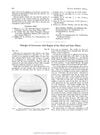 55 citations,
May 2017 in “Current stem cell research & therapy”
55 citations,
May 2017 in “Current stem cell research & therapy” Using fat-derived stem cells for hair loss treatment is safe and effective, improving hair growth and patient satisfaction.
 47 citations,
February 2021 in “Pharmacological research”
47 citations,
February 2021 in “Pharmacological research” Exosomes can improve skin health and offer new treatments for skin repair and rejuvenation.
 33 citations,
September 2019 in “Dermatologic Surgery”
33 citations,
September 2019 in “Dermatologic Surgery” Using a special stem cell formula on the scalp once a month for six months helped people with hair loss grow more hair.
 26 citations,
March 2014 in “Rheumatology”
26 citations,
March 2014 in “Rheumatology” Some drugs used to treat inflammation may cause hair loss.
 26 citations,
July 2006 in “Current Opinion in Otolaryngology & Head and Neck Surgery”
26 citations,
July 2006 in “Current Opinion in Otolaryngology & Head and Neck Surgery” New techniques in scalp reconstruction have improved cosmetic results and reduced complications, especially for large defects.
 25 citations,
January 2006 in “Pharmacoepidemiology and drug safety”
25 citations,
January 2006 in “Pharmacoepidemiology and drug safety” SSRIs can cause hair loss, especially sertraline, with higher risk in women.
 21 citations,
October 2019 in “The journal of investigative dermatology/Journal of investigative dermatology”
21 citations,
October 2019 in “The journal of investigative dermatology/Journal of investigative dermatology” A specific gene change plus an additional mutation in the same gene cause hereditary trichilemmal cysts.
 19 citations,
January 2016 in “Annals of Dermatology”
19 citations,
January 2016 in “Annals of Dermatology” Dutasteride is safe and effective for treating hair loss, but may decrease libido.
 18 citations,
December 2018 in “Expert Opinion on Biological Therapy”
18 citations,
December 2018 in “Expert Opinion on Biological Therapy” Hair follicle stem cells are promising for wound healing but require more research for safe clinical use.
 17 citations,
January 2013 in “Indian Journal of Pharmacology”
17 citations,
January 2013 in “Indian Journal of Pharmacology” High levels of the seizure medication sodium valproate can cause hair loss.
 17 citations,
June 2001 in “Journal of the National Cancer Institute”
17 citations,
June 2001 in “Journal of the National Cancer Institute” A specific hair diffraction pattern may indicate breast cancer if tested with the correct method.
 15 citations,
June 2015 in “Human Cell”
15 citations,
June 2015 in “Human Cell” Spheroid culture in agarose dishes improves survival and nerve cell growth in thawed human fat-derived stem cells.
 14 citations,
May 2019 in “Experimental Dermatology”
14 citations,
May 2019 in “Experimental Dermatology” Fat tissue extract may help treat vitiligo by reducing cell stress and promoting skin repair.
 13 citations,
June 2020 in “Stem Cells International”
13 citations,
June 2020 in “Stem Cells International” A substance from a specific gel helped to grow hair effectively in mice, suggesting it could potentially be used to treat hair loss in humans.
 13 citations,
April 2019 in “Seizure”
13 citations,
April 2019 in “Seizure” Valproic acid increases the risk of hair loss more than other drugs, especially in migraine patients, and lamotrigine may be a safer alternative.
 13 citations,
March 2019 in “Pharmacology Research & Perspectives”
13 citations,
March 2019 in “Pharmacology Research & Perspectives” In Singapore, most skin reactions to drugs were in females and Chinese, often caused by painkillers, antibiotics, and some other drugs, with serious cases linked to genetics.
 11 citations,
June 2018 in “Sexual medicine reviews”
11 citations,
June 2018 in “Sexual medicine reviews” Stromal Vascular Fraction might help with male sexual dysfunction, but more research is needed to confirm its safety and effectiveness.
 9 citations,
May 2005 in “Annales de dermatologie et de vénéréologie”
9 citations,
May 2005 in “Annales de dermatologie et de vénéréologie” Oral zinc and topical steroids can effectively treat chronic scalp pustules and hair loss in elderly patients.
 8 citations,
August 2016 in “Annales de Dermatologie et de Vénéréologie”
8 citations,
August 2016 in “Annales de Dermatologie et de Vénéréologie” A woman with anorexia improved significantly after being treated for scurvy with vitamin C, despite not showing typical scurvy symptoms.
 7 citations,
October 1963 in “Textile Research Journal”
7 citations,
October 1963 in “Textile Research Journal” Merino wool fibers change shape with moisture, while human hair shape stays the same.
 6 citations,
October 2018 in “Drug safety - case reports”
6 citations,
October 2018 in “Drug safety - case reports” Alitretinoin may cause irreversible hair curling as a side effect.
 6 citations,
June 2018 in “Journal of Stomatology, Oral and Maxillofacial Surgery”
6 citations,
June 2018 in “Journal of Stomatology, Oral and Maxillofacial Surgery” Nanofat grafting is better for delicate areas and combining it with lipofilling might improve hair loss treatment.
 5 citations,
February 2013 in “Klinik Psikofarmakoloji Bulteni-bulletin of Clinical Psychopharmacology”
5 citations,
February 2013 in “Klinik Psikofarmakoloji Bulteni-bulletin of Clinical Psychopharmacology” A teenager lost hair due to fluoxetine and sertraline, but it grew back after stopping these drugs and switching to a different one.
 3 citations,
March 2014 in “Turkderm”
3 citations,
March 2014 in “Turkderm” Hair loss in men can be slowed or reversed with treatments like minoxidil and finasteride, but it resumes if treatment stops. It may also indicate early heart disease and obesity.
 2 citations,
June 2020 in “Türkderm Türk deri hastalıkları ve frengi arşivi”
2 citations,
June 2020 in “Türkderm Türk deri hastalıkları ve frengi arşivi” Yellow dots and short vellus hairs are key signs for diagnosing alopecia areata using trichoscopy.
 2 citations,
January 2018 in “Journal of clinical & experimental dermatology research”
2 citations,
January 2018 in “Journal of clinical & experimental dermatology research” Both fat-derived stem cells and platelet-rich plasma are effective and safe for hair loss, but stem cells give better results with more side effects.
 2 citations,
January 2018 in “Dermatology Review/Przegląd Dermatologiczny”
2 citations,
January 2018 in “Dermatology Review/Przegląd Dermatologiczny” Use trichoscopy to diagnose hair loss; treat with minoxidil, finasteride, or dutasteride; consider platelet-rich plasma and spironolactone.
 2 citations,
December 2016 in “Turkderm”
2 citations,
December 2016 in “Turkderm” The study found that many young Syrian refugees have skin infections, especially cutaneous leishmaniasis, and need better health care and living conditions.
 2 citations,
March 2014 in “Turkderm”
2 citations,
March 2014 in “Turkderm” Mesotherapy and platelet-rich plasma treatments may help with hair loss, but their safety and effectiveness are still uncertain.
 1 citations,
January 2023 in “Przegląd Dermatologiczny”
1 citations,
January 2023 in “Przegląd Dermatologiczny” The Polish Society of Dermatology recommends treatments for alopecia areata that vary by severity, including topical and systemic medications, with long-term maintenance important for management.






























